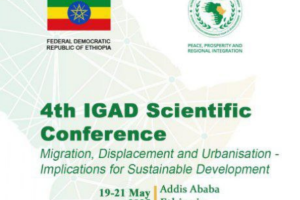
Togetherness plays a pivotal role in ensuring peace within a society. It refers to the idea of collective responsibility and working together harmoniously to achieve common goals. When people work together, they give a sense of belonging and community, which ultimately results in peaceful coexistence. Without togetherness, society would be fragmented, and conflicts would arise quickly, leading to instability and chaos.
When people communicate openly and honestly with each other, they develop mutual understanding and trust, leading to collaborative efforts to address common issues that may lead to conflict. Listening to and understanding each other’s point of view makes it easier to find a lasting solution to problems.
When people come together, they bring with them different perspectives, experiences, and opinions. It is important to acknowledge these differences and use them to reach a common goal or understanding that benefits everyone. Consensus building creates a sense of ownership and pride in group achievements, leading to greater social harmony.
By coming together, people gain a better understanding of their neighbors, and often this leads to a strong sense of compassion towards those who are less fortunate. It is through empathy and compassion that people build long-lasting relationships and foster a deep sense of community. In such communities, people are more likely to support each other in times of need, reducing the likelihood of conflicts arising.
When people come together, they learn to respect each other’s differences while recognizing their similarities. In such surroundings, everyone has an equal voice and value, which fosters trust and cooperation. With respect, stereotyping and discrimination reduce, leading to an inclusive society that is peaceful.
Communities that appreciate diversity are likely to be more tolerant and thus more peaceful. This is because they are built on shared values and common aspirations, and not on insignificant differences. Togetherness plays a vital role in ensuring peace within a society. It involves working collaboratively, building consensus, exercising empathy, and promoting equality, respect, and tolerance. When people come together, they create a sense of community and belonging that fosters peace and stability.
Togetherness is one of the key components that cement unity among people. It refers to the ability of individuals to come together with shared experiences and a common goal. Communities that are characterized by a sense of togetherness often exhibit a bond that creates a sense of belonging that transcends cultural, social, and economic boundaries.
Togetherness fosters a sense of collective responsibility among individuals, leading to a greater commitment to the community’s well-being. Members who feel a part of a community are more likely to take ownership of their actions and hold others accountable for theirs. This sense of collective responsibility goes a long way in promoting social harmony and reducing conflicts that may arise due to individualistic tendencies.
When people come together, they are less likely to discriminate against each other based on factors such as race, gender, or religious beliefs. Inclusivity is, therefore, a vital aspect of social integration, which is critical for promoting social cohesion and preventing extremism. Communities that have a sense of togetherness are more likely to be tolerant and accepting of diversity, which leads to a richer and more vibrant social fabric.
Togetherness is the foundation of mutual trust among people. When individuals come together, they develop relationships founded on mutual respect and understanding. Trust is the glue that holds any community together, and it is essential in promoting cooperation and collaboration. Communities that lack trust are more likely to experience conflicts, which undermines the fabric of society.
When people come together, they develop a shared identity that creates a sense of belonging. This sense of belonging is essential in promoting mental well-being, as it reduces feelings of isolation and loneliness. Communities that have a sense of togetherness are more likely to be happier and healthier, as they provide the kind of social support that is critical in promoting well-being.
Togetherness fosters a sense of pride in the community. When individuals feel part of a community, they are more likely to take pride in its achievements. This sense of pride is critical in promoting a positive outlook on life, as it encourages individuals to focus on the positive aspects of their lives. Communities that have a sense of togetherness are more likely to be resilient in times of crisis, as they have a foundation of shared pride and optimism.
One of the key aspects of togetherness in politics is the ability to build consensus through dialogue. By fostering open and inclusive conversations, political actors can create a space where different viewpoints are heard, understood, and respected. This exchange of ideas leads to a better understanding of the diverse needs and aspirations within society, facilitating the identification of common ground that can serve as a foundation for collective decision-making.
By creating spaces for negotiation and compromise, political actors can find middle ground that addresses the concerns of all parties involved. This approach creates opportunities for collaboration, fostering a spirit of cooperation and mutual understanding. By recognizing shared goals and interests, political actors can collaborate with like-minded individuals or groups to achieve common objectives. These alliances leverage collective strength and resources, maximizing the impact of their efforts and enhancing the likelihood of success.
By acknowledging and valuing various viewpoints, individuals and communities can perceive that their voices are truly heard and their concerns are genuinely taken into account. This increased recognition and responsiveness generate a heightened level of public trust in the political system, as citizens begin to acknowledge and appreciate the fair, transparent, and inclusive nature of decision-making processes.
When people witness their perspectives being genuinely valued and understood, it creates an environment of mutual respect and empathy. This atmosphere of empathy facilitates dialogue, collaboration, and compromise, resulting in policies and decisions that reflect the broader needs and desires of the population. By actively engaging with dissenting opinions and fostering a culture of open dialogue, political actors can bridge ideological gaps and create opportunities for reconciliation. This collaborative approach helps to reduce social tension, promote unity, and cultivate a shared vision for the future.
When political actors actively seek common ground and build consensus, they inspire citizens to unite and work together towards shared goals. This collective effort towards a common purpose transcends individual differences, fostering a sense of togetherness and camaraderie among the populace.
By prioritizing collaboration over conflict, political actors create an environment where trust, mutual respect, and effective communication flourish. This shift in attitude and approach allows for more constructive dialogues and discussions, enabling the resolution of disagreements in a peaceful and productive manner. When individuals from diverse backgrounds and ideologies are encouraged to work together, they develop a greater understanding and appreciation for one another. This increased empathy and respect serve as a foundation for a cohesive and harmonious society, reducing the likelihood of social unrest and promoting long-term stability.
The culture of cooperation and unity often has a ripple effect on other aspects of society, transcending the political realm. When individuals witness political actors engaging in constructive dialogue and working together towards common goals, it inspires them to emulate these behaviors in their personal and professional lives. This cultural shift towards cooperation and unity can have wide-ranging positive impacts, fostering a more cohesive and compassionate society as a whole.
By putting aside differences and focusing on shared objectives, one can create a conducive environment for implementation of initiatives that can bring about positive change. This sustained collaborative effort paves the way for continuous advancements in various spheres of society, ensuring a brighter future for generations to come.
By fostering a culture of inclusivity and cooperation, political actors can bridge ideological gaps, reconcile conflicting interests, and forge alliances that lead to effective and legitimate governance. By encouraging active participation and inclusivity, governments can create an environment where individuals feel heard, valued, and represented. This strengthens the social fabric and enhances trust in institutions, fostering a collective identity that transcends individual differences and ultimately contributes to a more harmonious society.
BY ADDISALEM MULAT
THE ETHIOPIAN HERALD SUNDAY EDITION 17 SEPTEMBER 2023




